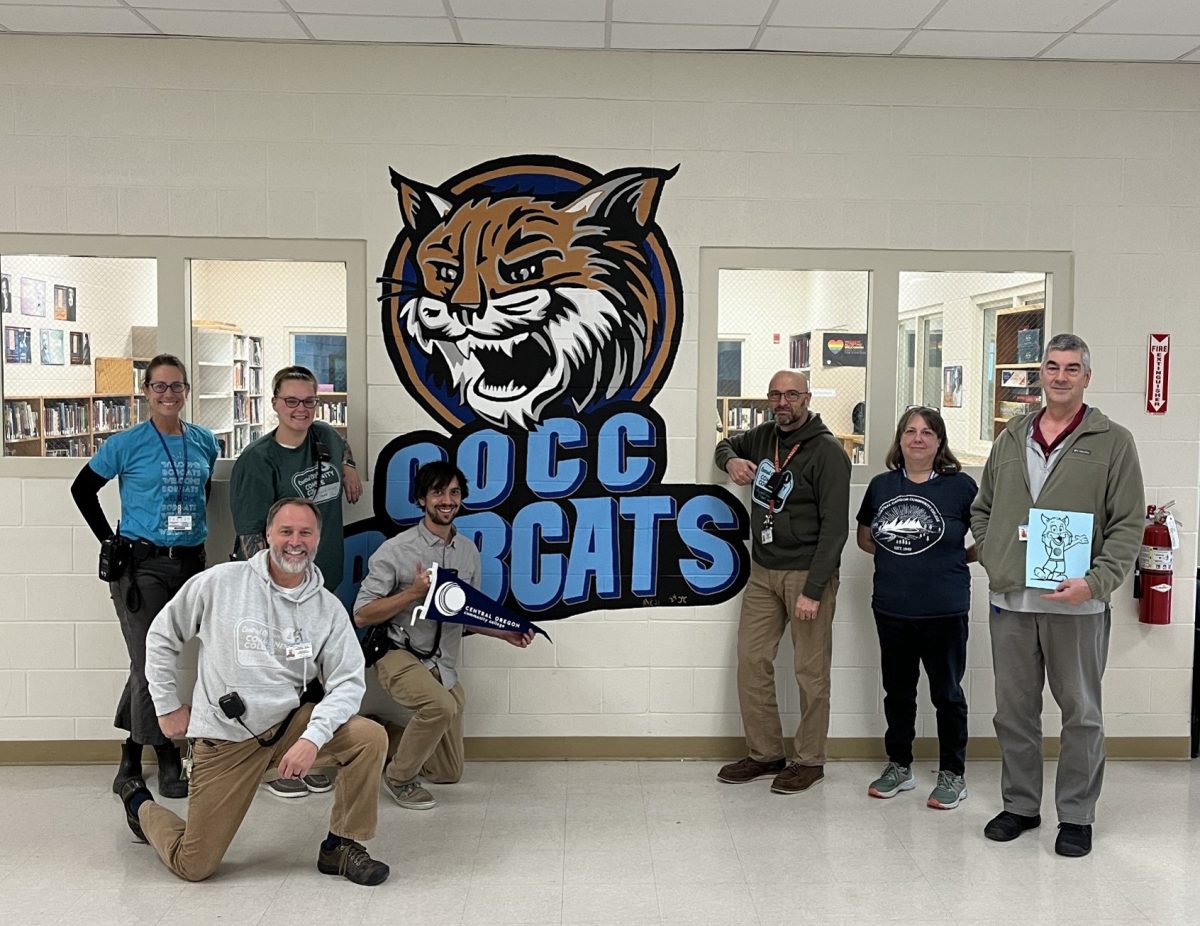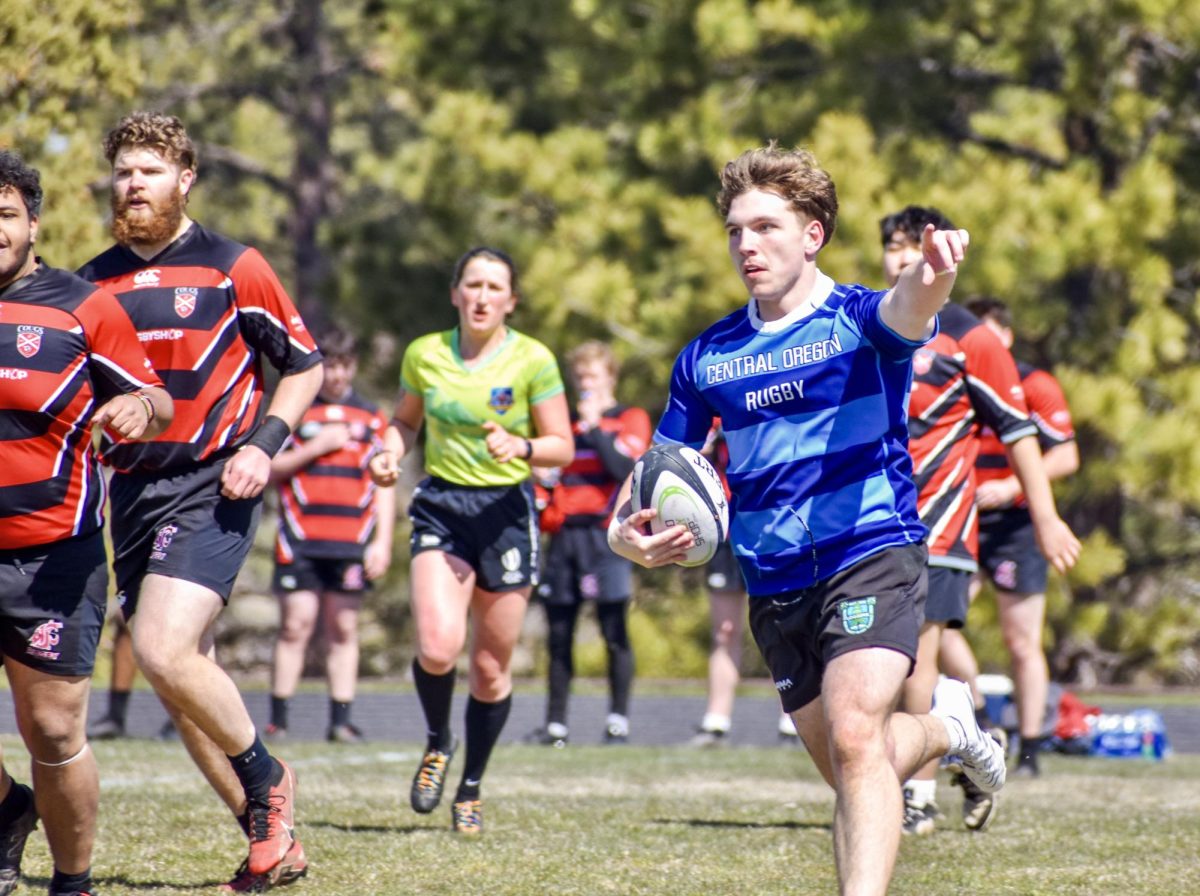As winter break approaches, it marks the end of the third term for students in the Associate of Arts Oregon Transfer program at Deer Ridge Correctional Institution. Last spring, after almost a year and a half, Central Oregon Community College received approval to open an AAOT program at DRCI. After completing the three-step long process for Federal Pell Grant eligibility, COCC’s 10 plus year presence at the institution grows.
COCC Professor of Biology, Emma Chaput, took charge of this project after returning from a year-long sabbatical.
“The COCC mission is to provide high quality educational opportunities for our community, and these people are residents of our community,” said Chaput.
Once returning to COCC, Chaput received immediate approval and support from President Dr. Chesley and started her recruiting process for other professors. In the meantime COCC had to work towards the Federal Pell Grant.
The Pell Grant, similar to the Free Application for Federal Student Aid, is a source of financial government funding for those who lack the means to afford college. Typically low-income families or in this case, those with no income. After elimination of the Grant in 1994, Pell Grants were reinstated after almost 30 years in 2023.
Unlike at COCC, this program had a competitive application process. There were only 18 spots available, due to the sizes of classrooms and number of instructors/courses. With over 40 applicants the admissions panel studied test scores, personal essays and series of questions to see applicants’ intention for using this opportunity.
Finally, after every box was checked, classes started last spring term and ended successfully. This is an ever-changing and evolving program, but so far has had a positive impact on the community.
Sam Hannah, a student at DRCI, is hoping to be part of the public health field, possibly with a bachelors in Therapy.
“I want to make the best use of my time and have a better future,” said Hannah, “I like that it is a conduct for growth and change, a portal to society and being a member of a community.”
Offering these classes not only gives students the opportunity to learn but also to grow as a person.
“It has made me more responsible, diligent and proactive. Giving me purpose, drive and intense motivation,” said Hannah.
Jessie Harris, another student at DRCI, is working towards being in the automotive field/mechanic.
“I want to be the first in my family to go to college,” said Harris, “I love the program, I think its awesome. They are giving people in prison the chance to succeed in life when they go home.”
Harris says that due to familial medical situations, he will focus on making up for lost time, but that won’t prevent him from pursuing his dreams.
“I want to succeed and I wont let anything stop that,” said Harris.
Inside the institution there is no internet access and limited resources in general. For many college students the internet is a huge part of their learning career with software like Canvas, Word and Outlook. The professors that teach there have to get creative on how to give them a similar learning experience as those on the other COCC campuses.
“I am teaching a lab science class. So figuring out what materials I can and cannot bring in is difficult, I don’t have a lab there. Our classroom doesn’t even have a sink,” said Chaput.
Michael Klinkerfues teaches computer information systems at DRCI. Klinkerfues taught at a prison in Minnesota for seven years before relocating to Central Oregon. Teaching a CSI class with no internet has also forced Klinkerfues to get creative and experimental.
“I’ve had to pivot and adjust a lot,” said Klinkerfues.
Explaining that he prints out all of the assignments for the week on paper, as well as taking into account that the students have minimal access to the computer lab there, which is set up for students who are part of the GED program at DRCI. With that in mind Klinkerfues uses some pre-made/manipulated softwares that are designed to teach the students with minimal computer usage.
Though the lack of internet connection caused a myriad of questions to arise, the professors noticed a positive side effect. Unlike other college students, these students don’t have access to phones, meaning that when they are in the classroom they are focused on the learning.
“It is an incredibly dedicated student body, it is not an easy environment to be a student,” said Chaput.
With the third term ending, the DRCI is looking forward to the next term, with hope that the future will hold opportunities for more cohorts. Chaput is currently looking for more professors to teach new courses to be able to include more interested students.















